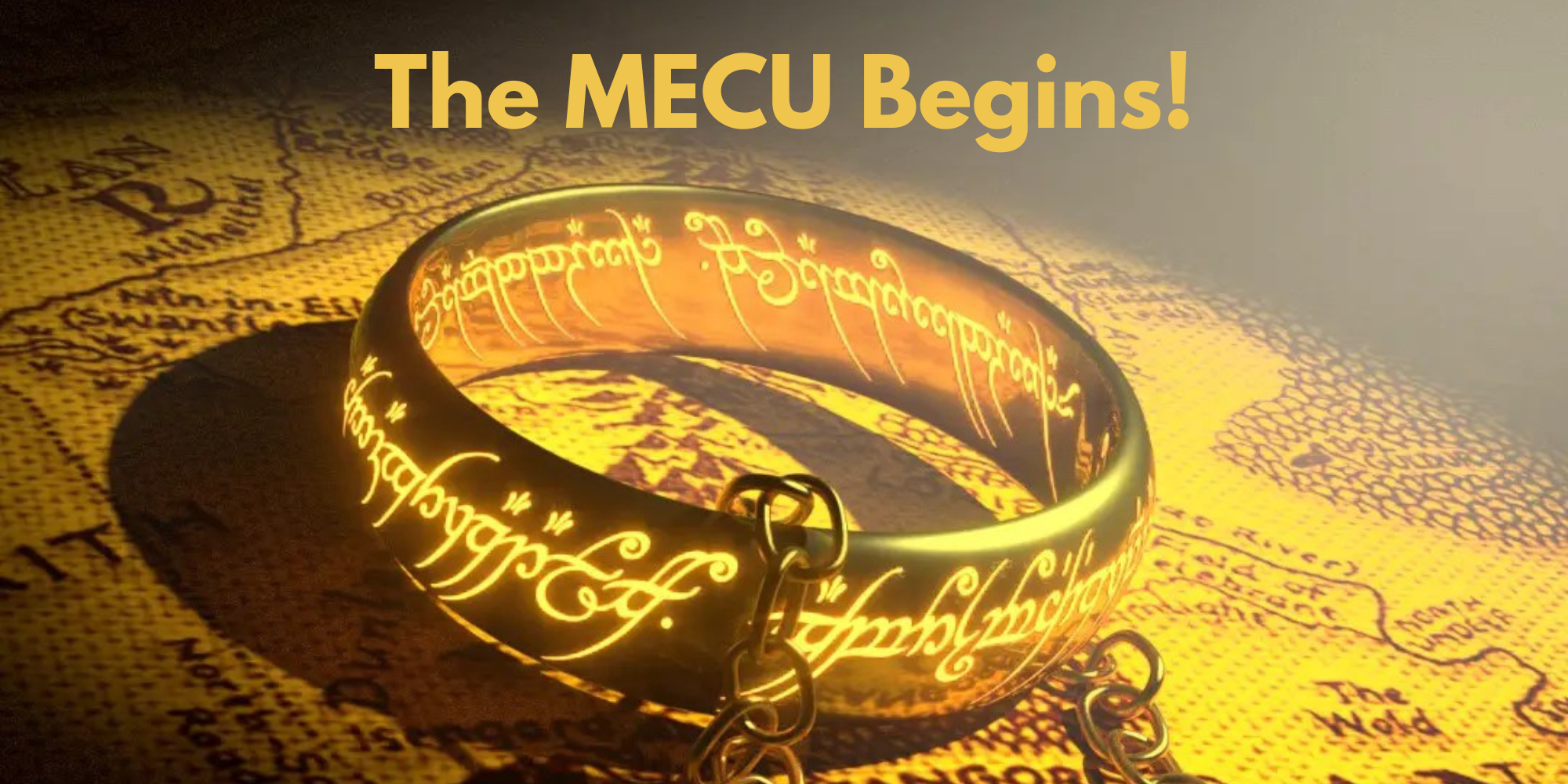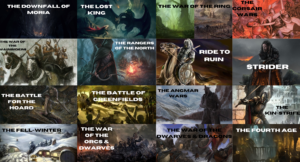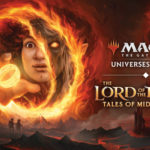
The MECU – Part 2
Well, a lot has happened the past few weeks regarding the Lord of the Rings IP and its future in the medium of film. Warner Bros. Pictures and Embracer Group (along with Middle-earth Enterprises) have come to an agreement to bring Middle-earth back to the world of cinema through a collection of new films based on the works of J. R. R. Tolkien. While exact details of what the future might hold are quite limited, we do have a general idea of what WB can and can’t do, and the possibilities and situations that might come out of the deal; including discussions of turning the Lord of the Rings into a Star Wars-style film franchise/cinematic universe, where entire movies could be based on the backstories and origins of singular characters. While these types of discussions and ideas are looked at negatively in certain sections of the fandom, I want to take the necessary time today to look over and talk about some of the unique scenarios we might find ourselves in later down the line and what exactly the future might hold for the Lord of the Rings IP.
So, without further ado, let’s get started!
To begin, I want to briefly touch on some of the known details within the new deal itself and what those particular details can tell us about future plans and the possibility of a Middle-earth Cinematic Universe. For instance, when the deal broke, almost everyone on this side of the internet believed that the Lord of the Rings films were being remade when that’s not going to be the case at all (didn’t help that almost every news outlet and article title fed into that conspiracy). In the official statement made by Warner Bros. Pictures’ Michael De Luca and Pamela Abdy, they stressed the importance of both of Peter Jackson’s trilogies and how going deeper into Tolkien’s world was the studio’s main objective. This statement put into writing that Peter Jackson’s Lord of the Rings trilogy will not be messed with in terms of a possible remake or reboot. The emphasis on PJ’s work also gives weight to the idea that these new movies will also be set in the same cinematic universe as the previous two trilogies.
Jackson’s movies are so beloved and iconic, and his vision for Middle-earth is so deeply rooted in many of our imaginations, that it would be a mistake not to add the new movies to the already established, pre-existing universe. The designs of those movies alone play an important role in helping to extend the universe out even further. Not only because they’re award-winning but those designs help transport us, the audience and fans, back to Middle-earth in ways that are extremely hard to do.That’s why being in the same cinematic universe as both the Lord of the Rings and the Hobbit trilogies is so, so important.
As for Peter Jackson himself, WB is already hard at work bringing him back along with Fran Walsh and Philippa Boyens. In what capacity exactly, we do not know, but by the sounds of it, both parties seem very interested in teaming up once again. To some fans, that’s a dream come true. Seeing the godfather of Middle-earth return for another round would be very, very exciting. For others, it’s worrisome. Some fans want to see new creatives working on these projects. They will cite the Hobbit trilogy as the primary reason for change, and while I don’t think it’s quite fair to blame the shortcomings of those movies solely on Peter Jackson, I do think that getting a different interpretation of Middle-earth through a fresh pair of hands would be thoroughly interesting. That said, if PJ decides to come back as either a director or writer or producer, I wouldn’t complain. Just being back in the Middle-earth that he crafted for the big screen is enough for me to get excited once again.
To switch gears for a moment, let’s talk a little bit about what we might get to see in this “Middle-earth Cinematic Universe” or MECU for short. There have been a lot of things (some true, some completely fabricated) floating around the internet the past few weeks regarding what WB can and can’t with these rights; including a possible non-compete clause with Amazon that we here at FoF exclusively reported on just a couple of weeks back. The clause limits WB to stories that do not compete with the ones being told in Amazon’s The Rings of Power series. So that means no Forging of the Rings, no Downfall of Numenor or no War of the Last Alliance – so pretty much nothing from the Second Age. That leaves Warner Bros the entirety of the Third Age and the Fourth Age if they decide to go that route. And for those that might be wondering, the Silmarillion and the Unfinished Tales are both off-limits for WB, just as they are for Amazon. The film rights to those novels are still locked away in a vault deep under the Tolkien Estate – never to see the light of day.
But even without the First and Second Ages at their disposal, Warner Bros can still mine the mountain of content that lay within the Third and Fourth Ages, respectively. And if the “Star Wars-ification” of Middle-earth in film comes to fruition, then more than likely we will get to see the bulk of the late-age stories come to life on the big screen at some point. Below, I listed some of the late-age stories and events that WB could adapt to films.

The Wainrider War
The Corsair Wars
The Angmar Wars
The Battle of Greenfields
The Fell-winter
Young Aragorn
Eorl the Young
Cirion and Eorl
Fram and Scatha
The Downfall of Moria
The War of the Orcs and Dwarves
The War of the Dwarves and Dragons
The Kin-strife
The War of the Ring/The War in the North
The Fourth Age
Arathorn and the Dunedain
Earnur and the Witch-king
So yeah, there are a good many stories left to be told in the Third Age of Middle-earth. This list doesn’t even include the origin stories (aside from young Aragorn) and character-focused spin-offs that Embracer Group has been talking about since they initially bought the rights back in August of last year. Back when they originally purchased Middle-earth Enterprises, they showed interest in making movies based on characters like Gandalf, Gollum, and Eowyn, just to name a few, and if some of the (unconfirmed) rumors that are currently circling end up being true, the likelihood of these specific spin-offs making their way to the big screen seems very, very high.
And while the idea of these being the films we’re going to get might scare or bore people, I think it’s the most obvious choice for the situation that WB is in currently. See, Warner Bros is not in a good place financially at the moment, and starting an extended universe off with something safe seems like the wisest thing for them to do. Besides, the only reason why we’re getting the MECU in the first place is because Zaslav and Co. remembered that the Lord of the Rings was popular and the IP is still super relevant today (The Rings of Power no doubt helped with that, as well).
The Lord of the Rings, or to be more specific – or more broad, in this case – Middle-earth, is a great option for WB because it’s proven to be a success in every way imaginable and it doesn’t involve a lot of risk. The War of the Rohirrim, for example, is a very reasonable starting point for WB and it will help to show if this strategy of making Middle-earth into a big film franchise is fruitful in the long run. Just think about it: WOTR is not too estranged from the films (even bringing back Miranda Otto as Eowyn), it’s based around a group of people that we’re familiar with, it has a relatively cheap cast and crew, and instead of being live-action, it’s an anime. It’s an extremely low-risk, high reward endeavor that can help to set the stage for what’s to come. It has also changed from being a film that was solely made to retain rights to jumpstarting an entire expanded universe – talk about a change in trajectory. On top of that, WB and Embracer are treating the deal as a wholly new agreement and not an extension of the prior deal. This shows a level of dedication that had been absent in previous years.
The new deal also presents a 3-year lease, which essentially means that WB is going to have to figure out what they want to make and fast or risk losing the rights… again. They can’t just sit around and twiddle their thumbs while holding the IP hostage behind their locked doors, because in 3 years time, if they haven’t announced any new projects after WOTR, those rights they paid all that money for will slip through their grasps and into the arms of some other big corporation. Doesn’t sound like a smart business deal if that were to happen, does it?
What I expect is in the next year or so, probably after the release of the War of the Rohirrim (maybe at San Diego Comic-Con?) WB will announce a slate of films – not too many, maybe 2-3 at most – and then go from there. Those films will be considered “safe” and they won’t ask for much in terms of budget – one might even be another anime, depending on the success of WOTR. In my eyes, a young Aragorn movie is a surety, with the possibility of the Angmar Wars or the Downfall of Moria or the Battle of Greenfields making it to the big screen, as well. This will all be leading to something, something big. What that something is, though, I’m afraid to ask.
And that brings me to the final thing I want to talk about: In this era of cinematic universes and spin-offs after spin-offs, and sequels after sequels, what we be considered “enough” for production companies?” What would keep in them down the path of quality over quantity? Will they even care about the fans or just what can make them the most money without actually putting any time or effort into it? Will it take all the money drying up to make that happen or will someone on the inside have to realize that the universe that Tolkien created and Jackson stewarded was meant to be praised, honored, and revered… not exploited? I guess only time will tell.




No Comments